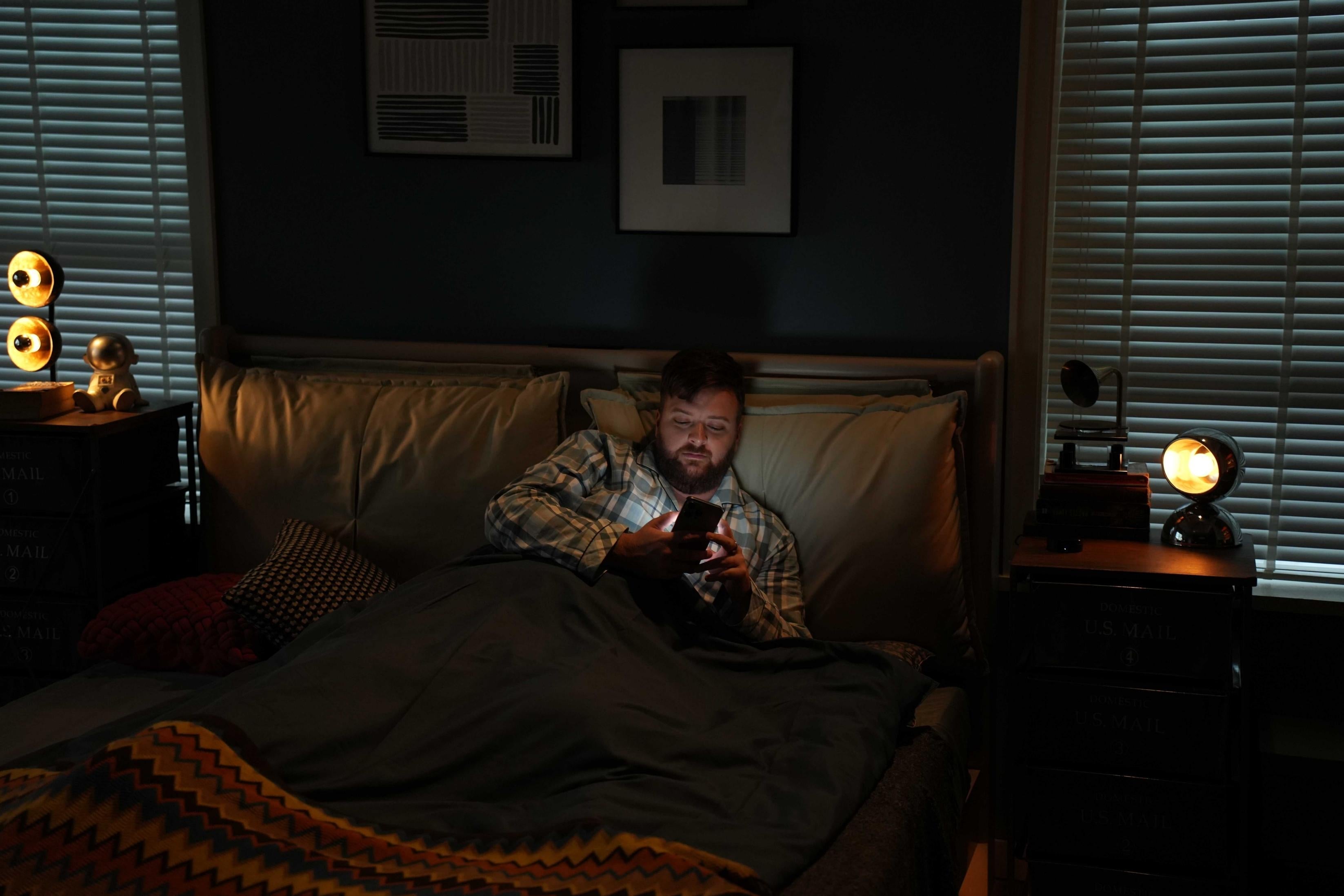
Imagine this: it’s late at night, you’re physically drained, but your mind won’t shut off. Sound familiar? You’re not alone. Millions of people experience this frustrating sleep dilemma, known as the fatigue–insomnia paradox—your body craves rest, but your brain refuses to cooperate.
Poor sleep affects everything from mood to productivity, and long-term sleep deprivation can even harm your health. The good news? Understanding why this happens is the first step toward better rest. In this guide, we’ll explore the science of sleep, the hidden culprits behind sleeplessness, and evidence-based strategies to help you fall—and stay—asleep.
The Science Behind Sleep: Why Can’t You Sleep Even When You’re Tired?
Your sleep is controlled by two key biological processes:
1. Sleep-Wake Homeostasis (Your Sleep Pressure System)
Think of this as your body’s sleep gauge. The longer you stay awake, the stronger your body’s urge for sleep becomes. However, stress, late-night screen exposure, and caffeine can throw this system off balance, making you feel exhausted but restless.
2. Circadian Rhythm (Your Internal Clock)
Your circadian rhythm tells your body when to feel alert and when to wind down. Factors like late-night phone use, irregular sleep schedules, and shift work can disrupt this rhythm, making it difficult to fall asleep—even when you’re physically drained.
📌 Key Takeaway: If your sleep-wake system and circadian rhythm are out of sync, falling asleep can become a challenge. The good news? There are practical fixes to restore your natural sleep cycle.
Why You’re Struggling to Sleep: 5 Common Causes
If you’re tossing and turning at night, chances are it’s not just one thing keeping you awake—it’s a mix of factors.

1. Psychological Factors: The Overthinking Trap
Stress, anxiety, and racing thoughts are major sleep disruptors. If your mind is busy replaying the day or worrying about tomorrow, falling asleep becomes difficult. Mindfulness techniques, journaling, or guided meditation can help quiet your thoughts before bed.
2. Lifestyle & Sleep Hygiene
Your daily habits play a huge role in sleep quality.
❌ Inconsistent sleep schedules (e.g., sleeping in on weekends) confuse your internal clock.
❌ Caffeine, nicotine, and alcohol can interfere with sleep—even hours after consumption.
✅ A consistent bedtime routine (dim lights, relaxation, and no screens) can help signal your body it’s time to sleep.
3. Environmental Factors: Your Sleep Setup Matters
Your bedroom environment directly affects your sleep.
✅ Cool, dark, and quiet rooms promote deep sleep.
✅ Blackout curtains, white noise machines, and comfortable bedding can improve rest.
✅ If you wake up frequently, tracking your sleep interruptions can help identify triggers.
4. Medical & Hormonal Factors
Sometimes, sleep disorders or hormonal changes are to blame.
🔹 Sleep Apnea: If you snore loudly or wake up gasping, consult a doctor.
🔹 Restless Leg Syndrome (RLS): Uncontrollable leg movements at night can disrupt sleep.
🔹 Hormonal Shifts: Menopause, pregnancy, and thyroid imbalances can impact rest.
5. Circadian Rhythm Disruptions
Night shifts, travel, or weekend binge-watching can confuse your body’s internal clock. The fix?
🔹 Morning sunlight exposure helps regulate melatonin production.
🔹 Consistent sleep and wake times (even on weekends) improve sleep quality.
📌 Key Takeaway: Identifying your biggest sleep disruptors is the first step to fixing them.
How Technology Can Help: Tracking & Improving Sleep

If you’re struggling with sleep, tracking your sleep patterns can offer powerful insights. Wearable technology like RingConn’s smart ring can analyze:
✔ Sleep Stages: Tracks your deep, light, and REM sleep.
✔ Heart Rate & Blood Oxygen Levels: Helps detect stress and potential sleep disorders.
✔ Sleep Apnea Monitoring: Identifies potential sleep apnea events during the night.ght.
🔍 Example: One user found that their caffeine intake in the afternoon was affecting their deep sleep—after adjusting their habits based on RingConn’s insights, their sleep quality improved significantly.
📌 Key Takeaway: Understanding why you’re waking up at night allows you to make small but effective changes.
Expert-Backed Strategies for Better Sleep
Want to start sleeping better tonight? Try these science-backed techniques:
1. Create a Sleep-Friendly Environment
✅ Keep your bedroom cool (60-67°F is optimal).
✅ Use blackout curtains and eliminate unnecessary light sources.
✅ Invest in a comfortable mattress and pillows that support good posture.
2. Try Relaxation & Mindfulness Techniques
✅ Journaling: Write down your worries before bed.
✅ Meditation & Deep Breathing: Lowers stress and prepares your body for sleep.
✅ Progressive Muscle Relaxation: Releases built-up tension in the body.
3. Optimize Your Daily Habits

✅ Avoid caffeine after 2 PM to prevent sleep disruptions.
✅ Exercise regularly (but not too close to bedtime).
✅ Reduce evening screen time—blue light blocks melatonin production.
📌 Key Takeaway: Small, consistent changes can lead to big improvements in sleep quality.
User Stories, FAQs & Expert Insights
Real-Life Experiences
📖 Anna, 28: “I thought I was a light sleeper, but RingConn’s data showed me I wasn’t getting enough deep sleep. By cutting down caffeine and setting a bedtime routine, I finally wake up feeling rested.”
📖 John, 50: “RingConn’s data alerted me to potential sleep apnea. After consulting a doctor and using a CPAP machine, I sleep better than I have in years.”
Common Questions
💡 Can sleep trackers cure insomnia?
No, but they can identify patterns that contribute to poor sleep.
💡 Is RingConn comfortable to wear at night?
Yes! Its lightweight design ensures you don’t even notice it’s there.
Expert Advice
🩺 Dr. Rachel Kim, Sleep Coach: “A cool, dark, quiet room is key for deep sleep.”
🏋️ Dr. Mark Taylor, Fitness Expert: “Exercise is great for sleep, but avoid workouts within 3 hours of bedtime.”
Final Thoughts: Craft Your Personal Sleep Blueprint
Getting great sleep isn’t about luck—it’s about understanding your sleep patterns and making small, consistent improvements. Whether it’s tweaking your bedtime routine, adjusting your lifestyle, or using smart tracking tools like RingConn, every step counts.
✨ Your journey to better sleep starts today! Want to track your sleep and improve your rest? Visit RingConn’s website to learn more.



コメントを書く
このサイトはhCaptchaによって保護されており、hCaptchaプライバシーポリシーおよび利用規約が適用されます。